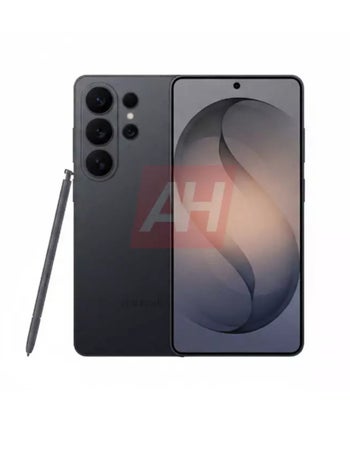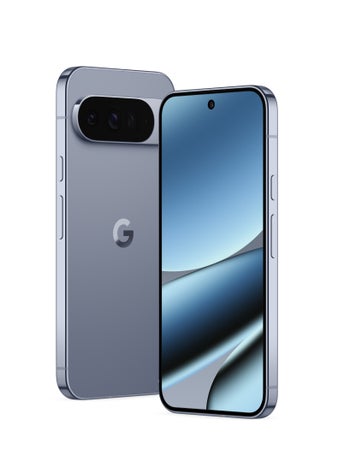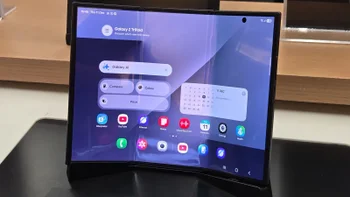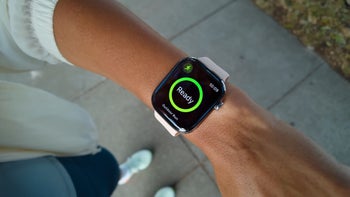Samsung Galaxy S26 Ultra vs OnePlus 15: Main differences to expect

Samsung ended 2025 on a high note with the Galaxy Z Fold 7 foldable and its Tab S11 series, but it's already 2026, and the South Korea-based giant is kicking things off by releasing the Galaxy S26 Ultra on February 25, 2026. That said, no sudden moves will be made: the Galaxy S26 Ultra will be very similar to the Galaxy S25 Ultra, with just a few key improvements here and there, but nothing too drastic.
In terms of rivals, there are a few already, like the iPhone 17 Pro Max and the Pixel 10 Pro XL, but a more adept one has just broken cover: the OnePlus 15.
It is powered by the same chipset that'll power the Galaxy once it arrives but comes with a much larger battery that no Samsung flagship will get next year (aside from the company's tablets, and that's saying something).
In this article, we will summarize what we know of these two Android darlings and compare their ins and outs with the goal of determining which one is the smarter buy in 2026. Flagship battle, commence!
Samsung Galaxy S26 Ultra vs OnePlus 15 expected differences:
| Galaxy S26 Ultra | OnePlus 15 |
|---|---|
| Design | |
| Continuation of the Galaxy S25 Ultra design, but with aluminum | Flat new design with redesigned camera bump |
| Possibly thinner at 7.9 mm | Slightly thicker at 8.1 mm |
| Possibly heavier at around 220 grams | Potentially lighter at 210-215 grams |
| Display | |
| 6.9-inch AMOLED | 6.78-inch OLED |
| 1-120 Hz refresh rate | 1-165 Hz refresh rate |
| Anti-reflective coating and privacy screen feature | No anti-glare coating |
| Gorilla Glass Armor | Gorilla Glass Victus 2 |
| Performance | |
| Snapdragon 8 Elite Gen 5 for Galaxy, 3nm | Snapdragon 8 Elite Gen 5, 3nm |
| 12/256GB 12/512GB 12/1TB | 12/256GB 12/512GB 16/256GB 16/512GB 16/1TB |
| Camera | |
| Quad camera (200MP + 10MP 3X + 50MP 5X + 50MP ultra) | Triple camera (50MP + 50MP ultra + 50MP 3.5X) |
| 12MP front | 32MP front |
| Battery | |
| Smaller 5,000 mAh battery (for the 6th year in a row) | Significantly larger 7,300 mAh silicon-carbon battery |
| An upgrade from 45W to 60W wired charging | 120W wired charging, 50W proprietary wireless |
| 25 W Qi2 magnetic charging with magnetic accessory support | No magnetic attachment system |
Read more:
Design and Size
New looks for the OnePlus
The Galaxy S26 Ultra is not scoring any major design changes and will reportedly look just like the Galaxy S25 Ultra, with curved corners and a flat frame. This one will be made of aluminum, though, as Samsung is bidding goodbye to titanium. You could trace the reason for that shift to Apple, which changed the build materials with the iPhone 17 Pro and Pro Max.
The S Pen is staying on the Galaxy S26 Ultra, despite rumors that it could get axed. Reportedly, there was some magnetic interference from the new Qi2 magnets at the rear that messed up the functionality of the display digitizer, but Samsung might have found a way around it. So, a Bluetooth-less S Pen will most certainly be on deck.
Meanwhile, the OnePlus 15 utilizes "aerospace-grade nano-ceramic metal," said to be stronger than titanium, aluminum, or stainless steel. Definitely maybe sounds like vibranium from Wakanda.
| Galaxy S26 Ultra | OnePlus 15 |
|---|---|
| Thickness 7.9 mm | Thickness 8.1 mm |
| Dimensions 163.6 x 78.1 mm | Dimensions 161.4 x 76.7 mm |
| Weight 214 g | Weight 215 g |
Size-wise, we expect that the OnePlus 15 will be slightly more compact than the Galaxy S26 Ultra, potentially being shorter and narrower but a smidgen thicker. Considering the monstrous 7,300 mAh battery that could make it to the back of the device, a thickness of just over 8 millimeters is still mind-boggling.
In terms of water and dust resistance, the OnePlus 15 will inevitably be the better-endowed device, as it will once again come with IP69-rated resistance. This one ensures protection against even strong water jets and pulses, certainly giving peace of mind.
The Galaxy S26 Ultra could arrive in Black, White, Silver Shadow, Sky Blue, Cobalt Violet, and Pink Gold, while the OnePlus 15 comes in Infinite Black, Ultra Violet, and Sand Storm.
In terms of water and dust resistance, the OnePlus 15 will inevitably be the better-endowed device, as it will once again come with IP69-rated resistance. This one ensures protection against even strong water jets and pulses, certainly giving peace of mind.
Display Differences
With the OnePlus 15, the display is getting a trim down to 6.78 inches, a minuscule difference against the OnePlus 13's 6.82-inch screen. We also get super-smooth 1-165Hz refresh rate support in some games. Otherwise, it's all 120 Hz, but that should be smooth enough.
The Galaxy S26 Ultra will be scoring Gorilla Glass Armor at the front, while the OnePlus 15 relies on the good ol' Gorilla Glass Victus 2.
At the same time, the Galaxy S26 Ultra display will likely be very similar to the one on the Galaxy S25 Ultra. Think of a 6.9-inch size (among the largest around), with full HDR support, smooth 1-120Hz refresh rate support, and a peak brightness of 3,000 nits, up from 2,600 nits. We also expect a third-gen anti-reflective coating to make an appearance.
| Galaxy S26 Ultra | OnePlus 15 |
|---|---|
| Size 6.9-inch | Size 6.78-inch |
| Refresh rate 1-120Hz | Refresh rate 1-165Hz |
Another improvement would be a new privacy film-like feature, which will reportedly utilize AI to control viewing angles in order to protect your privacy from prying eyes. That's a pretty intriguing feature that could eliminate the need for a dedicated privacy screen protector.
Both the Galaxy S26 Ultra and the OnePlus 15 will rely on ultrasonic fingerprint scanners. For your convenience, you will be able to add facial recognition as a possible unlock method, of course.
Performance and Software
Now that's about to be a battle for the ages
Qualcomm is the chipset supplier for both the OnePlus 15 and the Galaxy S26 Ultra: the Snapdragon 8 Elite Gen 5 is ticking inside either one of these Android phones. In the case of the Galaxy S26 Ultra, this will be on a global scale, so we won't be getting an Exynos 2600 of the Ultra phone.
Yet, the Samsung might have a leg up: it could potentially score a "Snapdragon 8 Elite Gen 5 for Galaxy" chipset inside, a slightly overclocked version that will potentially deliver better raw performance than the one inside the OnePlus 15.
| Galaxy S26 Ultra | OnePlus 15 |
|---|---|
| Chip Qualcomm Snapdragon 8 Elite Gen 5 for Galaxy | Chip Qualcomm Snapdragon 8 Elite Gen 5 for Galaxy |
| Process 3nm | Process 3nm |
| RAM, Storage 12/256GB 12/512GB 12/1TB | RAM, Storage 12/256GB 16/512GB |
The Galaxy S26 Ultra will reportedly come with 12 GB of RAM, a bit low for current Android flagships, which typically pack 16 GB of RAM these days. That's exactly what we expect from the OnePlus 15, which will pack 16 GB of memory for exceptional multitasking and future-proofness with AI in mind.
Storage-wise, both phones will start at 256 GB, but only the Galaxy S26 Ultra will be available with 512 GB or 1 TB of storage. The OnePlus 15 will only be available with up to 512GB of storage.
Both phones will arrive with Android 16 on board, both with their respective custom skins on board: One UI 8.5 or newer for the Galaxy S26 Ultra and OxygenOS 16 for the OnePlus. The Galaxy S26 Ultra will get seven years of software updates, while the OnePlus 15 will score at least four years of software support.
Camera
Little changes
With the Galaxy S26 Ultra, we're getting the same camera setup as the one on the Galaxy S25 Ultra, save for the main camera, which will likely get a larger 1/1.1-inch sensor in comparison to the Galaxy S25 Ultra's 1/1.3-inch one. A larger sensor is a major boon for a phone camera, as it allows for greater dynamics, better sharpness, and more dramatic bokeh.
Aside from that, the camera system is reportedly the same: a 200MP main camera, a 50MP ultrawide, and two zoom cameras, a 10MP 3X telephoto and a 50MP 5X periscope. Yawn!
The OnePlus 15, on the other hand, has triple 50MP cameras, which perform well in our test but already lag behind the Galaxy S25 Ultra, which has scored a higher score in our test. Logically, we'd expect the Galaxy S26 Ultra to deepen the gap.
The OnePlus 15, on the other hand, has triple 50MP cameras, which perform well in our test but already lag behind the Galaxy S25 Ultra, which has scored a higher score in our test. Logically, we'd expect the Galaxy S26 Ultra to deepen the gap.
| Galaxy S26 Ultra | OnePlus 15 |
|---|---|
| Main 200 MP, f/1.7 24 mm 1/1.1" sensor | Main 50 MP, f/1.8 24 mm |
| Ultrawide 50 MP, f/1.9 | Ultrawide 50 MP, f/2.0 15 mm |
| Telephoto 10 MP, f/2.4 3X zoom (67 mm) | Telephoto 50 MP, f/2.8 3.5X zoom |
| Periscope 50MP, f/3.4 5X zoom (111 mm) |
Battery Life and Charging
Predetermined win for OnePlus
Can you guess how many times Samsung has used a 5,000 mAh battery on its Galaxy S flagships? Let me save you from opening a new browser tab: it will be six times in a row once the Galaxy S26 Ultra arrives, as that one is also getting a 5,000 mAh battery, just like the very first Galaxy S20 Ultra.
Not a particularly good outlook for Samsung given the recent developments in battery tech, where silicon-carbon batteries are now ruling the landscape and offer larger batteries than your standard lithium-ion battery.
The OnePlus 15 is shaping up to be one such exceptional example, as it's coming along with, drumroll please, a massive 7,300 mAh battery, significantly larger than what you'd get from any Galaxy flagship.
It's a wonder that we can get such massive batteries in phones not significantly larger these days. The battery revolution is here, but Apple, Google, and Samsung are not invited!
It's a wonder that we can get such massive batteries in phones not significantly larger these days. The battery revolution is here, but Apple, Google, and Samsung are not invited!
| Galaxy S26 Ultra | OnePlus 15 |
|---|---|
| Battery size 5,000 mAh | Battery size 7,300 mAh |
Charging speeds 45/60W wired 25W wireless charging Qi2 magnetic attachments | Charging speeds 120W wired 50W wireless charging |
In terms of charging, the Galaxy S26 Ultra will reportedly be scoring a wired charging upgrade from 45W to 60W, which is welcome.
Supposedly, we might also get Qi2 25W wireless charging with the necessary magnetic paraphernalia at the rear that will allow for the easy attachment of compatible accessories. We expect that this system will work similarly to Apple's MagSafe or Google's Pixelsnap.
OnePlus, one of the leaders in terms of charging speeds, comes with 80 W fast charging and 50 W wireless charging. There's the proprietary wall adapter included in the box as well.
Interestingly, those are double the charging speeds that the Galaxy S26 Ultra will likely end up with.
Specs Comparison
|
|
|
| Samsung Galaxy S26 Ultra | Google Pixel 10 Pro XL |
| Dimensions | |
|---|---|
| 163.6 x 78.1 x 7.9 mm | 162.8 x 76.6 x 8.5 mm |
| Weight | |
| 214.0 g | 232.0 g |
| Size | |
|---|---|
| 6.9-inch | 6.8-inch |
| Type | |
| Dynamic AMOLED, 120Hz | OLED, 120Hz |
| System chip | |
|---|---|
| Snapdragon 8 Elite Gen 5 SM8850-AC (3 nm) | Google Tensor G5 (3 nm) |
| Memory | |
| 12GB (LPDDR5X)/256GB (UFS 4.0) 12GB/512GB 12GB/1024GB |
16GB (LPDDR5X)/256GB (UFS 3.1) 16GB/512GB 16GB/1TB |
| Type | |
|---|---|
| 5000 mAh | 5200 mAh |
| Charge speed | |
| Wired: 45.0W Wireless: 15.0W |
Wired: 45.0W Wireless: 25.0W |
| Main camera | |
|---|---|
| 200 MP (OIS, PDAF) Sensor name: Samsung ISOCELL HP2 Aperture size: F1.4 Focal length: 24 mm Sensor size: 1/1.3" Pixel size: 0.6 μm |
50 MP (OIS, PDAF) Aperture size: F1.7 Focal length: 25 mm Sensor size: 1/1.3" Pixel size: 1.2 μm |
| Second camera | |
| 50 MP (Ultra-wide, PDAF) Sensor name: Samsung JN3 Aperture size: F1.9 Sensor size: 1/2.5" Pixel size: 0.7 μm |
48 MP (Ultra-wide) Aperture size: F1.7 Sensor size: 1/2.55" |
| Third camera | |
| 10 MP (Telephoto, OIS, PDAF) Sensor name: Sony IMX754 Optical zoom: 3.0x Sensor size: 1/3.94" |
48 MP (Telephoto, OIS, PDAF) Optical zoom: 5.0x Aperture size: F2.8 Focal Length: 113 mm Sensor size: 1/2.55" |
| Fourth camera | |
| 50 MP (Telephoto, Periscope, OIS, PDAF) Sensor name: Sony IMX854 Optical zoom: 5.0x Aperture size: F2.8 Focal Length: 111 mm Sensor size: 1/2.52" Pixel size: 0.7 μm |
|
| Front | |
| 12 MP (PDAF, HDR) | 42 MP |
See the full
Samsung Galaxy S26 Ultra vs Google Pixel 10 Pro XL specs comparison
or compare them to other phones using our
Phone Comparison tool
Summary
Just like in previous years, OnePlus is set to bring the battle straight to Samsung with a phone that's shaping up to be a better value, all things considered.
The Galaxy S26 Ultra is reportedly coming in hot with some key improvements, like better performance, an improved camera, and faster charging. Of course, the added benefit of the S Pen is also about to be part of the deal.
The OnePlus 15, on the other hand, gives us a raw upgrade in all key aspects that matter, including the performance, camera, and most importantly, the battery, which is set to be among the largest ones on a flagship device available in the US.
The Galaxy S26 Ultra is reportedly coming in hot with some key improvements, like better performance, an improved camera, and faster charging. Of course, the added benefit of the S Pen is also about to be part of the deal.
Does this mean it's the smarter buy? Let's see what the Galaxy has to offer first.
Which one should be the better deal? Remains to be seen.
Follow us on Google News






















Things that are NOT allowed:
To help keep our community safe and free from spam, we apply temporary limits to newly created accounts: